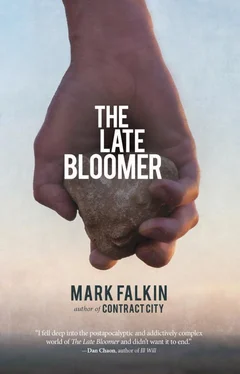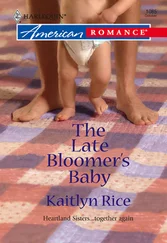Before the morning of, my life was prosaic. Now it started taking on the more elegant and exalted forms of poetry, of music. Three nights in a row I’ve gone out into the dusk to flesh out these things I’ve heard in my head all day. I use my lips and throat as a horn, missing my instrument terribly. When Nate and I go back to Austin in the spring, I thought, I’ll retrieve it, bursting with a notebook full of songs to blow through it. Hope springs eternal.
Cold came and leveled off in preparation for its full invasion. I couldn’t wait for more cold. I thought of them out there in it, how it had to change them, break them into something approachable.
What we did in those first three days, we did together. Nate never wanted to be alone, and the things we did were simple. We got our bearings and readied for this newest of seasons. The simplicity of the days gave them rhythm, and with that, comfort.
Setting the pieces up on a large stump, I got good at splitting wood. Nate would smile when I got on a roll. The rhythm, the breathing, the cadences. I drank it up through my pores. It nourished me. Whenever I took a breather, I’d ask him if he wanted to try and he always paused, then shook his head.
Maybe his head hurt. I didn’t ask him, but sometimes when leaning on his axe and staring off glassy-eyed into the sky I thought maybe it did. My earlier desire to know what he knew had evaporated. He didn’t know anything anyway, not that he could relate. He had been part of the hive, and the hive thinks as one. Now that he’d broken off from it, or been exiled, I don’t believe he had anything to tell me. He’s excommunicated and thus incommunicado. What he said to me in his somnambulism was it. There were no such moments thereafter. It all seemed moot. Tabula rasa.
On the third day, Nate told me he could do the egg-gathering by himself now. He wanted to do it next time, first thing in the morning. Busy with my chicken chasing while hearing the Rocky theme in my head— getting strong now! —I grunted sure, go for it, you know where the baskets are.
In the afternoons we scoped around the property’s perimeter, going a little farther down the road toward the nearest ranch each day. We could’ve taken the Bobcat but Nate bristled at the idea of getting on it. He always gave the vehicles a wide berth whenever we stacked wood in the carport. He clung to me when we got near them and he eyed them like they were sleeping creatures which would pounce if awakened.
That third afternoon, he didn’t want to keep going but I told him we were fine. He asked if we’d see dead people and I said we might but that I’d go in ahead of him and let him know.
He tugs on my sleeve, telling me he wants to turn back. As much I want to find this other ranch, can sense that it will come into view around the bend of this hill, I’m feeling it too. A fearsome pre-dusk density filled the air. I nod, I’m okay with turning back.
“Sorry,” he said, the shame in his voice a good thing. “Tomorrow we’ll go all the way.”
“Sure. No rush, though, okay? Baby steps. No shame in it.”
He cracked a smile and I tousled his hair. We turned around.
Maggie had been right there with us, usually leading the way and checking back. “C’mon Maggie,” I called out, my claps for her echoing off the limestone cliff walls. “Going back,” I cried through cupped hands, opening and deepening my voice. We both did a three-sixty turn. No Maggie.
With as much buoyancy mixed with calm as I could muster, I said, “Huh. Well, she’s off chasing something. She’ll catch up.” I think I even shrugged my shoulders like some fifties sitcom kid.
We began walking back. Our shoes crunched the trail which was mostly caliche, but in some places plates of limestone. Neither of us admitted that we didn’t hear her run off, heard no paws scratching on the trail. Neither of us wanted to admit that we didn’t see her dashing away. That neither of us wanted to discuss it made us walk faster.
Two vultures assuming their V-shapes made spiral sweeps down past the tree line horizon between us and the house. We had progressed a few hundred yards from the house this time, the farthest we’d been by a lot, and now the safety of a dwelling seemed far away and we felt exposed. The quiet, the distance from the house, and our nervous crunching feet got to me to the point where I wanted to draw the gun from my holster and walk with it, flick the safety off while pirouetting to see if we were being watched or followed.
Immense quiet does this to you. Even to you, dear reader, you there, sitting in a quiet place reading this. You feel it too. The quiet makes you uncomfortable. It makes you squirm. You have to look up to answer the questions all beings ask themselves all the time, consciously or not: Am I being watched, tracked, hunted? Even you, reading this, will now wonder and look about.
My watchful lieutenant of a dog had vanished. We were a good distance from anywhere. While we started this walk in the afternoon, I have to admit that I didn’t check the time nor the sun’s position in the sky and maybe we did depart from the house a bit later than before.
I didn’t want to scare Nate by drawing the glock, so I didn’t. I considered reaching in to pull loose the Velcro fastener, but I didn’t do that either.
What I did was pick up the pace and start whistling. I whistled a variation of one of the many themes that had come into my head those days. In my head I heard my trombone.
Nate had to trot some to keep up. “Kevin. Wait for me.”
I slowed just enough so he didn’t have to trot. “You know this one?” I asked. I started whistling the tune from Bridge Over the River Kwai . On the second pass, he tried to pick up on it and he got it on the third. We whistled like that for a hundred yards, walking fast enough so that the whistling became a challenge of breath.
Nate put his hand on me, stopped whistling, and asked, “Are you scared?”
I stopped whistling. “Huh-uh,” I lied, “just want to let Maggie know where we are.”
“Well, I’m scared.”
“Don’t be.”
“You’ve got a gun, right?”
“I do.”
“You know how to use it?”
“Yeah.” I started whistling again. Our pace had not slackened.
Winded, Nate asked, “You shot anything with it?”
“No, but I’ve been quail hunting with my stepdad. We used rifles.”
Nate got real quiet. He put his palms over his ears and then rubbed his temples with his fingers. “My mom carried one in her purse.” He blinked and jerked and stutter-stepped, as if he just heard it go off.
God, this is how his mom went. He was witness to it. “Hey. It’s all right. Listen, don’t try to remember right now, okay? Not right now.” Our feet scuffed the path. Some bird of prey overflew.
He burst out in a throaty cry, wiped at his eyes, and held his head.
Nate’s memories flooded him now. His face showed more panic than pain, his eyes wide and toggling back and forth at onrushing memory. I wanted to stop and hold him but we needed to keep walking. I called out loudly for Maggie, ripping the holster Velcro as I did. Then I whistled the theme to The Andy Griffith Show , my arm around Nate’s shoulders.
So there we were at the end of the world, seeking out hope and a future, striding fast, me whistling, eyeing the birds, watching the open spaces, gun drawn and held down to my side, my other arm around a boy who’s sobbing at the recall of his mother pulling a pistol from her purse and firing its bullet into her head—no doubt with a horrible crazy rictus on her face—and all along I’m deathly worried about Maggie, I’m deathly worried about what tomorrow brings. I’m deathly worried.
All our ersatz normalcy and rhythm dashed, once again we lived in the fearful moment. I knew this is how it would always be.
Читать дальше












